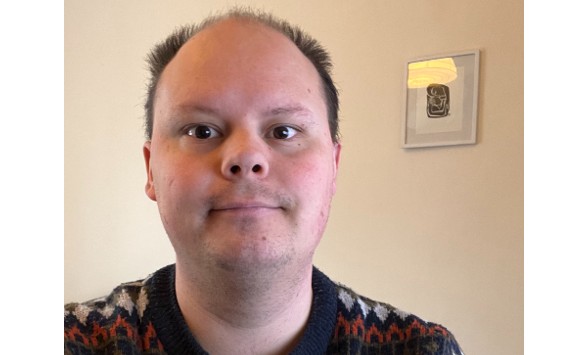Sheradan Miller
Having completed a PhD in Linguistics, Sheradan currently works as a Research Fellow at AQA, one of the awarding bodies in England that offers examinations at GCSE, AS and A Level.
About Sheradan's career
Describe your current role:
I am part of the Research & Development team at AQA, one of the awarding bodies in England that offer examinations at GCSE, AS and A Level. Our small team aims to support internal teams with our research expertise and subject knowledge to help make the qualifications better. A lot of trust is placed in our ability to aid business decisions and inform others of up-to-date knowledge in the field.
I’ve never felt as at home in a place as I did in Newcastle, and I think anyone coming to study in this city is going to love it.
How did you get into this field after studying Linguistics at Newcastle?
During my write-up year, I needed to get a job due to my funding running out. My son had been born in December 2020, so we needed a regular income to help us. I was applying for any research-related job I could find around the country. In the end, I was successful in getting a place as a researcher with the AQA Research & Development team. I was able to take on the role due to my years of research experience both with the PhD and in my previous roles as a research assistant at Aston University in Birmingham. I was only able to get this role due to my PhD work, and in my interview used this experience to prove my research acumen.
Studying Linguistics at Newcastle University
How has studying Linguistics at Newcastle helped you in your career?
It gave me the confidence that I was a good researcher. I am prone to chronic self-doubt and found that the support I had while studying for my PhD was valuable. This includes my wonderful supervisors, who supported me every step of the way, from the lowest lows to the highest highs. Also, my fellow PhD researchers were amazing. We had a weekly writing group that also worked as a support group. The PhD is a great experience but incredibly difficult, so having friends going through the same experience is a godsend.
Newcastle has allowed me to explore ideas, develop my skills and learn from mistakes. Research is always an iterative process; working on a single project for five years has shown me that. I became an independent and self-guided researcher, which only came through the opportunity to study Linguistics PhD.
What advice would you give to a student interested in studying Linguistics?
The first practical thing to do is pinpoint potential project supervisors. You are going to spend 3+ years working very closely with these academics, so you need to make sure you are comfortable with that commitment. Try to meet them before developing your proposal, go for a coffee or chat online. This will be a relationship that will develop and change as you become more independent in your research.
Also, ensure you are invested in your topic. I love learning about reading science and child literacy, but it is a lot to spend most of your time only thinking about this one project for so long. It is an amazing opportunity, but one which requires serious thought before embarking on.
What was the best thing about studying Linguistics at Newcastle?
It was the city, honestly, even after moving to the countryside outside Manchester and enjoying it here, I would move back to Newcastle in a heartbeat. Newcastle is a city that is small enough to explore on foot but dense with culture and life. I spent a lot of my free time attending gigs at The Cluny in Ouseburn, seeing films at the Tyneside Cinema, running along the Tyne towards Blaydon and trying all the independent food stalls at the riverside market on a Sunday (if the empanadas are still there, please try them!). You also have the whole of Northumberland on your doorstep, an underrated part of England that has its own rustic beauty. I’ve never felt as at home in a place as I did in Newcastle, and I think anyone coming to study in this city is going to love it.
.jpg)

